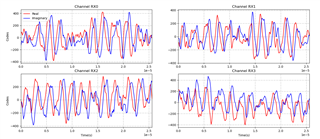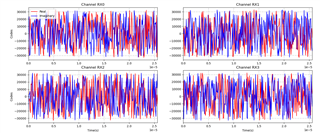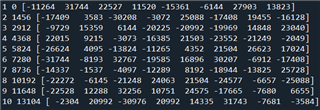Other Parts Discussed in Thread: DCA1000EVM,
Hi TI Customer Support,
I am using AWR 1243 BOOST with DCA1000EVM capture board to collect data, i have a question:
When I collect data from mmwave studio, data is adc_data_Raw_0.bin, I converted to Integer then data is:
[ 135, 175, 148, 9, -365, -119, -1, 73, 246, 183], but UDP packet data is 16 bits (-2^15~2^15). What mmwave studio
do when saving data?





